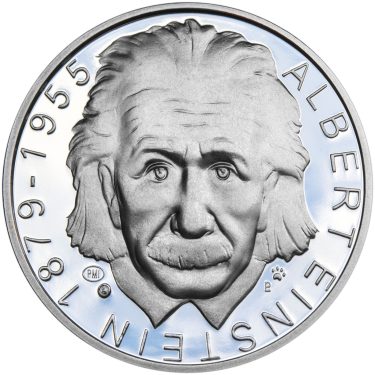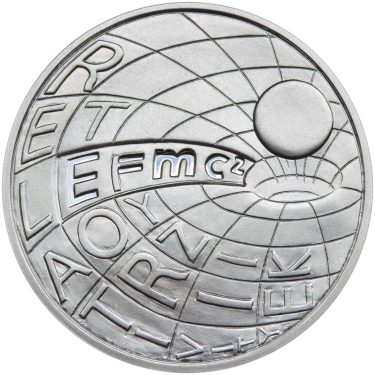Albert Einstein - 135. výročí narození silver proof
BEST SELLERS
diameter: 37 mm
weight: 31,1 g
purity: 999/1000 Ag
edge plain, numbered
limited mintage quality proof: 282 pcs
limited mintage quality antique: 98 pcs
issue day: March 2014
Objednávkový kód: CRM1635
weight: 31,1 g
purity: 999/1000 Ag
edge plain, numbered
limited mintage quality proof: 282 pcs
limited mintage quality antique: 98 pcs
issue day: March 2014
Objednávkový kód: CRM1635
KRÁSA POD LUPOU
Fotografie použity se svolením Zlatemince.cz.
Fotografie použity se svolením Zlatemince.cz.



